Copyright 2022 by The University of Arkansas Press. All rights reserved. No part of this book should be used or reproduced in any manner without prior permission in writing from the University of Arkansas Press or as expressly permitted by law.
ISBN: 978-1-68226-188-0
eISBN: 978-1-61075-759-1
26 25 24 23 22 5 4 3 2 1
Manufactured in the United States of America
Designed by Liz Lester
 The paper used in this publication meets the minimum requirements of the American National Standard for Permanence of Paper for Printed Library Materials Z39.48-1984.
The paper used in this publication meets the minimum requirements of the American National Standard for Permanence of Paper for Printed Library Materials Z39.48-1984.
Library of Congress Cataloging-in-Publication Data
Names: Imahara, Walter M., editor. | Meltzer, David E., editor.
Title: Jerome and Rohwer: memories of Japanese American internment in World War II Arkansas / edited by Walter M. Imahara and David E. Meltzer.
Description: Fayetteville: The University of Arkansas Press, 2022. | Includes index. | Summary: Collection of autobiographical remembrances related to life in the Jerome and Rohwer Japanese American internment camps during World War IIProvided by publisher.
Identifiers: LCCN 2021021839 (print) | LCCN 2021021840 (ebook) | ISBN 9781682261880 (cloth) | ISBN 9781610757591 (ebook)
Subjects: LCSH: Japanese AmericansEvacuation and relocation, 19421945. | World War, 19391945Personal narratives, American. | World War, 19391945Japanese AmericansBiography. | World War, 19391945Concentration campsArkansas. | LCGFT: Personal narratives.| Biographies.
Classification: LCC D769.8.A6 J47 2022 (print) | LCC D769.8.A6 (ebook) | DDC 940.53/17767850923956dc23
LC record available at https://lccn.loc.gov/2021021839
LC ebook record available at https://lccn.loc.gov/2021021840
Title page, top photo: Jerome Relocation Center, Denson, Arkansas, 1944. Charles E. Mace; War Relocation Authority Photo, National Archives Collection.
Bottom photo: Jerome Relocation Center, Denson, Arkansas, 1942. Tom Parker; War Relocation Authority Photo, National Archives Collection.
Dedicated to all former internees in the Jerome and Rohwer
Relocation Centers in Arkansas, 19421945;
to my father, James Masaru Imahara;
and to my mother, Haruka Sunada Imahara.
WALTER M. IMAHARA
FOREWORD
I have known and loved the remarkable Imahara family for nearly fifty years now, and it was my privilege to ghostwrite the autobiography of its patriarch, the late James M. Imahara, who was proud to call his book Son of Immigrants. Our preliminary interviews were the first time he had spoken about the trauma and struggles of the war and internment, and the outpouring of emotion was heart-wrenching. I hope the book was as cathartic for him as it was scary for me, but he told me Id better get everything he said once, because he was never talking about it again. I realized he meant that when I accompanied him to the local book club for a review. He wouldnt say a single word about the book or his experiences, but, looking around the room at the audience of mostly portly matrons, he whipped off his sports coat and started showing them exercises he did to remain in such good shape in his old age. I dont believe I ever took him with me to another book club!
His son Walter went in many different directions, but he never could stop planting. That green thumb he inherited was never satisfied if he wasnt planning and planting and maintaining some fabulous garden or other. After he retired from the familys very successful nursery in Baton Rouge, Walter spent years turning a cow pasture into a botanical wonderland to be shared with historic St. Francisvilles many visitors, then developed a gorgeous arboretum, and hes just finished a legacy garden at the Hemingbough cultural centerand who knows what hell do next.
Besides his horticultural skills, Walter and his lovely wife Sumi are consummate hosts, and their annual New Years Eve party was a fabulous experience. Their guests always came from such different realms and rarely knew each other, but Walter would make each one stand up and tell the story of their acquaintance and involvement with him and his family, and it made for such lively conversations.
Walter Imaharas story is such an interesting one, starting with a shamefully misguided event and chronicling his great effort and stubborn determination to succeedand succeed he did. And a tip of the hat to his brave mother for saving the scrapbooks of vintage family photos whenshe had to leave behind so many other possessions during internment; they add so much to the Imahara story.
ANNE BUTLER
St. Francisville, Louisiana

I have only known Walter for a few short years. And during that time, I loved learning his and his familys story. That is the purpose of this book.
During World War II, more than one hundred twenty thousand Japanese Americans were incarcerated and sent to camps from California to Arkansas. Many of these same people share their stories herein.
I was one that never knew about internment. It was not taught when I was in school in Arkansas, and I learned about this part of our history only when I started at the WWII Japanese American Internment Museum in McGehee, Arkansas, where I was curator from 2013 to 2021. My knee-jerk reaction was, What? What, Arkansas for goodness sake! It has been an amazing journey for me over the past six years for what I have learned and am still learning.
At one of the reunions of former Jerome/Rohwer internees a few years ago, Walter spoke. I found his story to be amazing, and I am so looking forward to reading his compilation of stories from the camps.
Nidoto Nai YoniLet it not happen again.
SUSAN GALLION
McGehee, Arkansas

As chairman of the WWII Japanese American Internment Museum in McGehee, Arkansas, I feel honored to contribute to this foreword on behalf of my friend Mr. Walter Imahara.
In April 2013, the museum opened, and to date we have had more than sixteen thousand visitors come through. The grand opening, which was taped by the CBS Morning Show, had George Takei as our special guest of ceremonies, and he gave a very touching story about his time at the Rohwer camp. The City of McGehees support, which has generated several thousand dollars in donations, has been overwhelming. We have had people from all over the country call us to donate items of interest that they have had from that period, in the hope that we might showcasethem. While we have undertaken the creation of this museum, we have had a great deal of support from different organizations that are putting forth their time to enhance the museum.
This book will illuminate and intensify the emotional, personal human stories that often get lost in the standard historical presentation, as this history has gone unnoticed long enough. I feel its a story that needs to be told, as the Japanese American internment experience is an important chapter in American history.
JEFF OWYOUNG
Mayor of McGehee and chairman
of the World War II Japanese
American Internment Museum
PREFACE
This book is an extraordinary, practically unique document, for it isto our knowledgethe only work composed of autobiographical remembrances solely related to life in the Jerome and Rohwer Relocation Centers in Arkansas written by former internees and their immediate families. It is one of the very few collections of postwar reminiscences devoted to a single one or two of the ten wartime relocation camps, and it is one of the

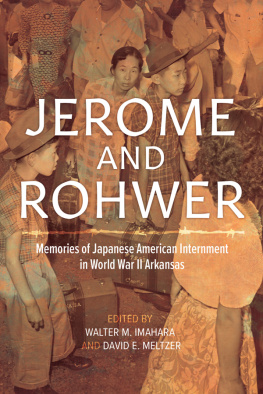
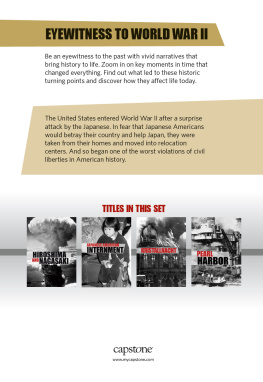
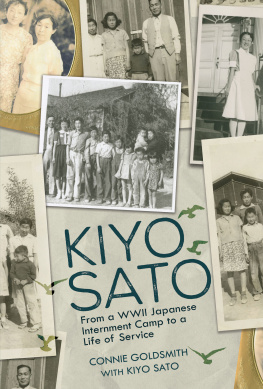
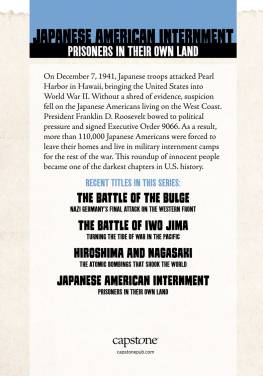
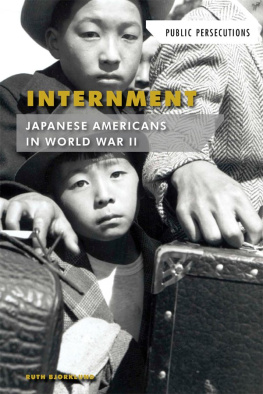
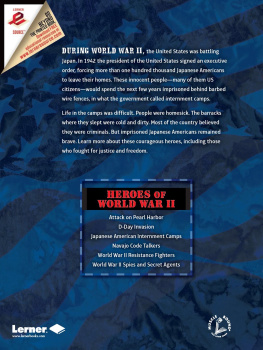
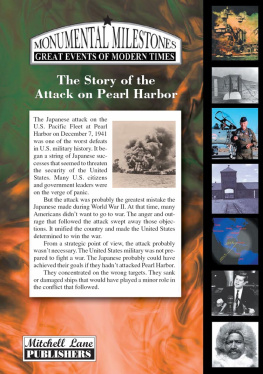
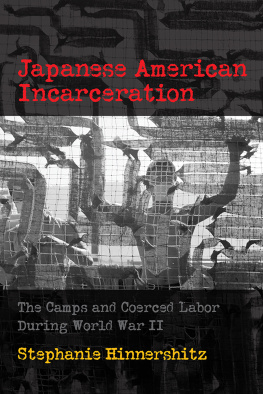
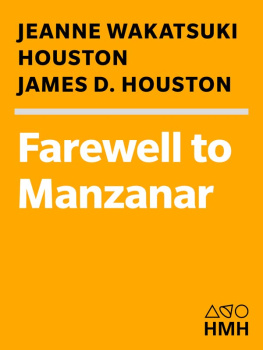


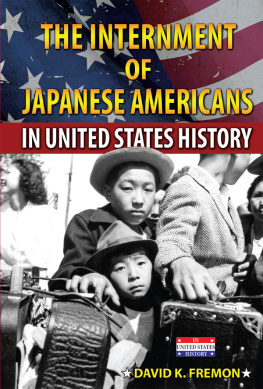

 The paper used in this publication meets the minimum requirements of the American National Standard for Permanence of Paper for Printed Library Materials Z39.48-1984.
The paper used in this publication meets the minimum requirements of the American National Standard for Permanence of Paper for Printed Library Materials Z39.48-1984.